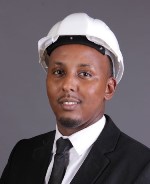and regulations in Somaliland: Public health and safety implications
FEATURED PAPER
By Adebayo A. Fashina1,2*, Ahmed A. Sheikh2, Funke F. Fakunle3, and Chibuzo Opiti4
1Project Management Program, School of Graduate Studies and Research, Gollis University, Hargeisa, Somaliland.
2Engineering Management Program, School of Graduate Studies and Research, Gollis University, Hargeisa, Somaliland.
3Health, Safety, and Environment Department, AdeFolasade Management Systems Consults, Lagos, Nigeria.
4Training Department, Hybrid HSE LTD, Opebi, Ikeja District, Lagos-Nigeria.
*Corresponding author: Adebayo Adeboye Fashina. adebayofashina@gmail.com
Abstract
Over the years, building codes (BCs) have been seen as an important driver for economic development. This is because building codes tackle a great number of any society’s most significant concerns and expectations for health, safety, well-being and environmental protection as well as establishing a baseline for suitable and cost-effective building quality. Consequently, this paper carefully explores and discusses the current construction practices before elucidating the major flaws and health & safety implications associated with the lack of building codes and its enforcement in Somaliland. The study concludes that the Somaliland government would have to take audacious steps regarding the implementation of building codes with the aim of reducing chronic and disaster risk while making progress towards a sustainable future. Moreover, practical recommendations for the future formulation of strategies/measures that will guide the development, implementation and enforcement of building code in Somaliland are proposed for public health, safety and well-being.
Keywords: Construction practices, construction projects, building codes and regulations, public health, public safety, low- and middle-income countries, Somaliland
- Introduction
Over the past two decades, natural hazards and disasters have resulted in the loss of more than 1.3 million lives, upset approximately 4.4 billion people, and led to $2.91 trillion in economic losses globally, between 1998 and 2017 (Pascaline, House, McClean, & Below, 2018; Sun, Gao, Gong, & Wu, 2020). Unfortunately, the poor and the marginalized have been excessively affected by these hazards and disasters. In particular, 85 percent of entire disaster-related death toll have been globally linked to the low- and middle-income countries (Sun et al., 2020). It has also been established that the effect of these disasters on gross domestic products (GDP) is about 20 times higher in high-income countries than in the low- and middle-income (Pascaline et al., 2018). Interestingly, this fact still invariably poses as an underlying threat to the Sustainable Development Goals (SDGs) that is geared towards putting an end to poverty and improving shared prosperity by 2030.
Although, attention and efforts to minimize the danger of large-scale severe health and safety risk occurrences in built environment might have overshadowed the increasing impact of smaller chronic risks, there have been an increased evidence in recent years which argues that the collective impacts of daily hazards resulting in remote losses are in actual fact superior to those of large disasters resulting from life-threatening occurrences (I. O. Adelekan, 2019; Bull-Kamanga et al., 2003). Nevertheless, their impacts on low- and middle-income countries are broadly underestimated, as they often fail to meet up with the standards that may qualify them as “disasters” in a global context (Faling, 2010; Sun et al., 2020). Consequently, a notable part of damage to housing, basic facilities, and low-income households influenced by small disasters has been poorly reported and ignored (I. Adelekan et al., 2015).
Taking a closer look, once could thus argue that the present development models add up to the widespread of hazard and susceptibility factors and consequently to the scaling up of disaster risk (I. Adelekan et al., 2015; Sun et al., 2020). Meaning that the vulnerable populations are not just affected by the possibility of catastrophic occurrences, but also suffer from the additional tricky and distributed losses of chronic risks, that often end the lives of thousands in fire outbreaks and impetuous collapse of inadequately designed or crudely constructed buildings (Bull-Kamanga et al., 2003; Faling, 2010). For instance, building collapses are a common, disastrous occurrence in low- and middle-income countries. A predominantly robust model of collective fire outbreaks and impetuous collapses of buildings in India (Raul H. Figueroa Fernandez, 2014), Bangladesh (Bolle, 2014), Nigeria (Helen Ifedolapo, 2015), Uganda (Mwanaki & Ekolu, 2014), and Kenya (Raul H. Figueroa Fernandez, 2014) in the last 25 years clearly exemplifies how the combined loss of human lives and basic facilities/properties in many of the low- and middle-income countries can be evidently defined as a disaster of noteworthy magnitudes.
While data about these unfortunate cases are distinct and not well organized in low- and middle-income countries, a few of them can still be explored in the literature. One of such is the work by Mwanaki & Ekolu (2014), who reported that 54 building collapse deaths and 122 injuries occurred between 2004 and 2008 in Kampala, the capital of Uganda. In 2012, India recorded 2,737 spontaneous building collapse incidents that claimed the lives of over 2,600 people and resulted in the injury of 850 persons (Raul H. Figueroa Fernandez, 2014). In another comprehensive study by Windapo & Rotimi (Windapo & Rotimi, 2012), the authors pinpointed 112 cases of building collapse and their causes in Lagos, Nigeria from December 1978 to April 2008. According to the Nigerian Building and Road Research Institute, 199 people died in four collapsed buildings incidents between 2014 and 2016 and more recently, Adugbo et al.(Daniel Adugbo; Haruna Ibrahim; Titus Eleweke, 2019) reported in a Nigerian daily newspaper that between February and May 2019, 29 deaths and 76 injuries were recorded from 13 building collapse incidents across Nigeria. In a more dreadful incident that occurred in April 2013, Bangladesh saw the deaths of over 1,200 persons, as a result of the collapse of an eight-story commercial building (Bolle, 2014). These cases are quite alarming and set the path for a pathetic call for the need to improve the health and safety of people from the lingering risks in low- and middle-income countries.
More…
To read entire article, click here
How to cite this paper: Fashina, A.A. Sheikh, A.A., Fakunle, F.F & Opiti, C. (2020). The drawbacks of the lack of building codes and regulations in Somaliland: Public health and safety implications; PM World Journal, Vol. IX, Issue VII, July. Available online at https://pmworldlibrary.net/wp-content/uploads/2020/06/pmwj95-Jul2020-Fashina-Sheikh-Fakunle-Opiti-lack-of-building-codes-in-Somaliland.pdf
About the Authors

Dr. Adebayo Adeboye Fashina
Hargeisa, Somaliland
![]()
Dr. Adebayo Adeboye Fashina is a young professional humanitarian, researcher, educator and education management consultant with over eight years of significant international experience working on STEM education, EOMS/Project management research and teaching, science research and teaching, and capacity building at various levels of education across Africa.
Dr. Adebayo hold a Bachelor’s degree in Physics/Electronics, MSc. in Theoretical Physics and Ph.D. in Theoretical and Applied Physics. He currently works with Gollis University, Hargeisa as an Associate Professor of Physics and Engineering Management. Prior to his present job, he worked as a Researcher/GTA/Lecturer-B at AUST before joining Kampala International University, Uganda as a Senior Lecturer and later worked as an Associate Professor at William V. S. Tubman University, Liberia. He was nominated for the 2016 Sustainable Energy Africa Awards and shortlisted as one of the three finalists in the ”Emerging Leaders” award category at the 2016 Nigeria Energy Forum.
Dr. Adebayo has conducted training workshops, seminars and given speeches/talks/presentations at local and international conferences. He has published more than 20 articles in reputed journals and is an active reviewer of many international journals. He is a motivated, energetic and focused individual with strengths in innovative teaching approaches, interdisciplinary research, data analysis, teacher training and team management. His research interest includes sustainable living, project management, RE policy and management, education organization management system (EOMS), educational planning, photonic nanostructures of materials etc. He is a fellow of African Scientific Institute, USA and the Institute of Management Consultants, Nigeria.
Dr. Adebayo can be contacted on adebayofashina@gmail.com or afashina@gollisuniversity.org

Ahmed Abdullahi Sheikh
Hargeisa, Somaliland
![]()
Ahmed Abdullahi Sheikh is a member of Dr. Adebayo’s research group at Gollis University. He holds a degree in Housing Building and Planning (Construction Management) with honors from the Malaysian University of Science (USM), Penang, Malaysia and a Master of Science in Engineering Management from Gollis University, Hargeisa, Somaliland. Ahmed has over 5 years of significant international experience in construction and real estate development, and he is highly skillful in construction management, project development, project design, technical/engineering drawing, contract management, tender preparation and cost estimation.
He is passionate about the health, safety and wellbeing of the general public and this has motivated his research efforts in areas such as the implementation and enforcement of building codes and regulation, construction management and project management.
Ahmed can be contacted on ahmatoyasin@gmail.com

Funke Folasade Fakunle
Lagos Nigeria
![]()
Funke Folasade Fakunle is a young female NEBOSH international diploma qualified professional with 10 years of significant QHSE experience in QHSE management, training and consultancy. Being passionate about Health, Safety and Environment (HSE) and management system in the workplace, she has acquired certifications in Process Safety: Hazard Operability study (HAZOP), Lean six sigma (Green Belt Holder), ISO 9001 Lead Auditor, OHSAS 18001 Lead Auditor, AOFAQ Level 3 Award in Education & Training, NEBOSH International Diploma in Occupational Safety and Health, NEBOSH International General Certificate in Occupational Safety and Health, Project Management, Rigging Safety and Inspection etc.
Funke received a B.Sc. degree in Mathematics from the University of Uyo, Akwa-Ibom, Nigeria in 2008. Over the past 10 years, she has gained significant QHSE experience in various industries. These include construction, oil & gas, logistics and transportation, telecommunication, manufacturing, banking and security sectors. She is a register Professional/Associated Member of the International Register of Certificated Auditors (IRCA), International Institute of Risk and Safety Management (IIRSM), and Society of Petroleum Engineers (SPE).
As an QHSE Consultant/Trainer at present, she conducts QHSE training, consulting and auditing/evaluation exercises that help improve the QHSE Management Systems of various organizations. This allows her to adequately provide her clients with the necessary advisory services that include but not limited to HSE employee orientation training, development, planning and implementation of QHSE Management Systems, QHSE auditing, Environmental Management System, process improvement and so on.
Funke can be contacted on funkefolasade7@gmail.com

Chibuzo Opiti
Lagos Nigeria
![]()
Chibuzo Opiti is a qualified and competent Health & Safety Consultant and Practitioner with vast experience in HSE administration, training and consulting for clients in the Oil and Gas industry as well as in major manufacturing and beverage companies in Nigeria such as NB plc, NBC, Smile communications, SAPETRO, PZ Cussons group, Dangote Group, Seplat amongst others.
He holds a B.Sc. degree in Human Kinetics from the University of Benin with active and consistent work experiences spanning over 9 years that has allowed him to acquire requisite knowledge and skills in safety management systems and loss prevention.
Chibuzo is a certified Auditor to ISO 9001, 14001 and OHSAS 18001 standards. He has also obtained NEBOSH International General Certificate in Health & Safety (UK), NEBOSH Diploma in Environmental Management (UK), amongst several other professional qualification. Over the year he has attended and completed several other professional certificate courses in occupational Health, Safety and Environment within and outside Nigeria.
Chibuzo is currently a Senior Partner and Training Co-Ordinator in Hybrid-HSE limited where he is actively involved in capacity and human capital building in the areas of HSE. As an active HSE practitioner, he has conducted seminars and facilitated various workshops that are geared towards creating more awareness about the HSE fields and mentoring the younger practitioners in the field, to make them not only self-sufficient but also ignite the culture of positive HSE culture in the larger society.
He is currently a member of IOSH, UK, an internationally recognized HSE professional and technical body.
Chibuzo can be contacted on opitichibuzo@yahoo.com









